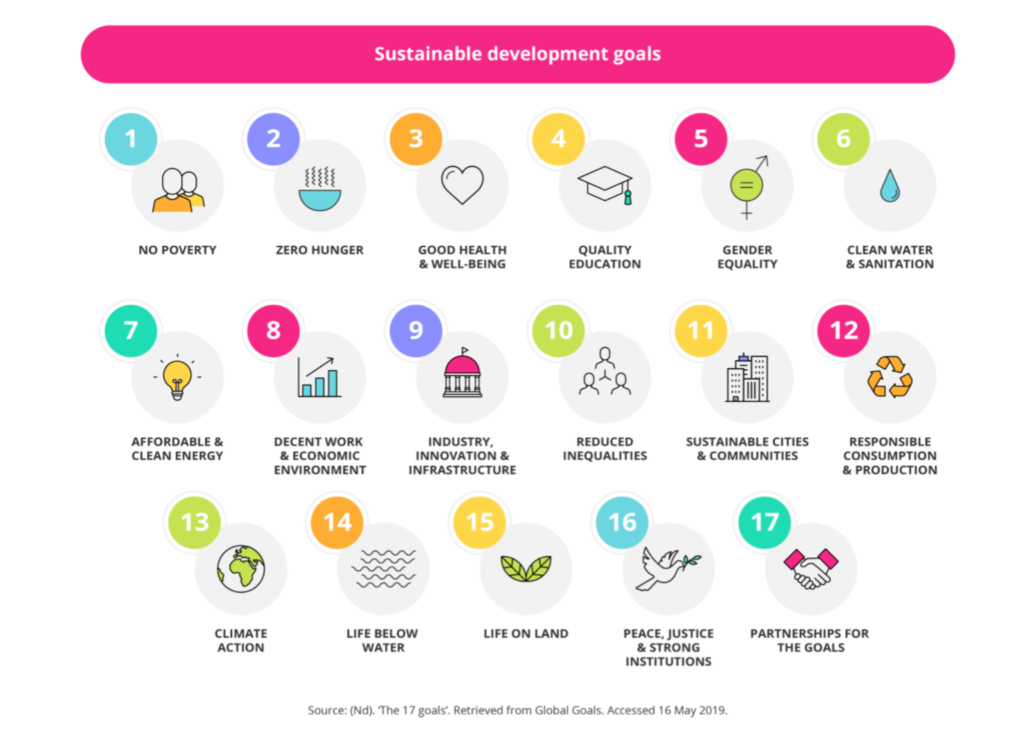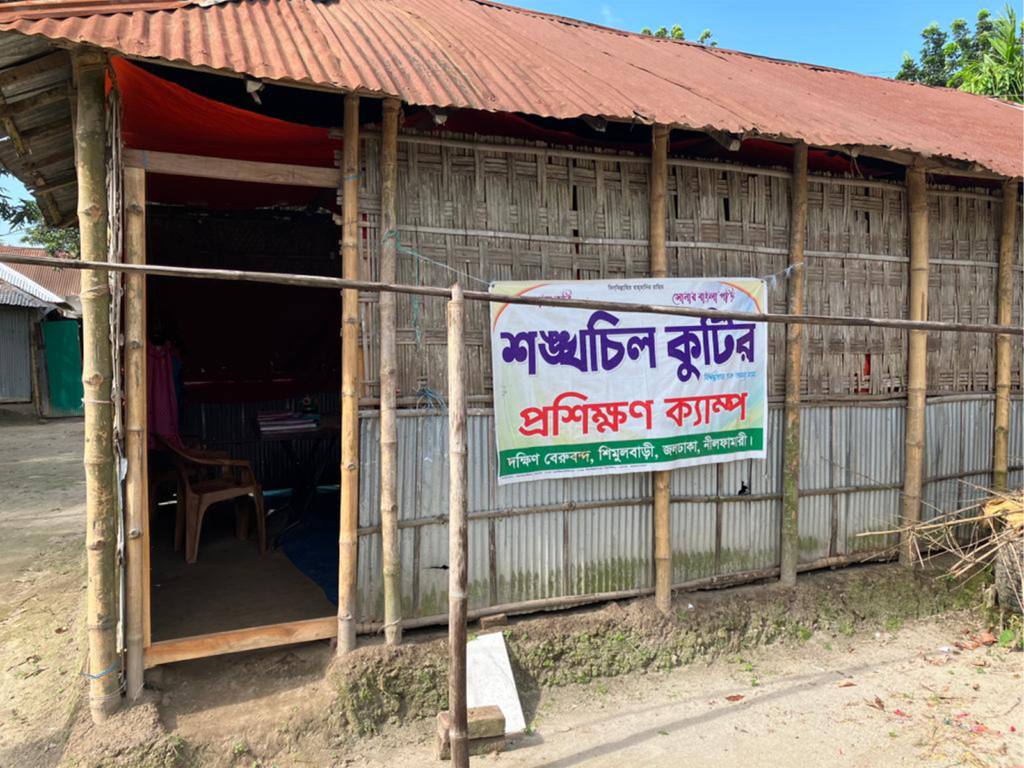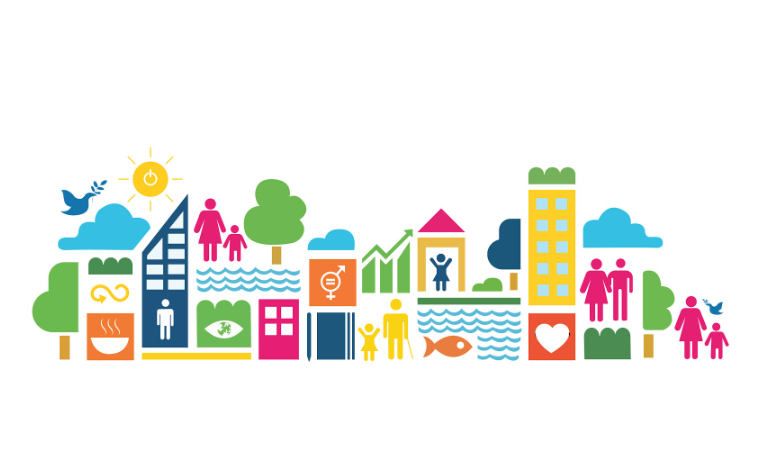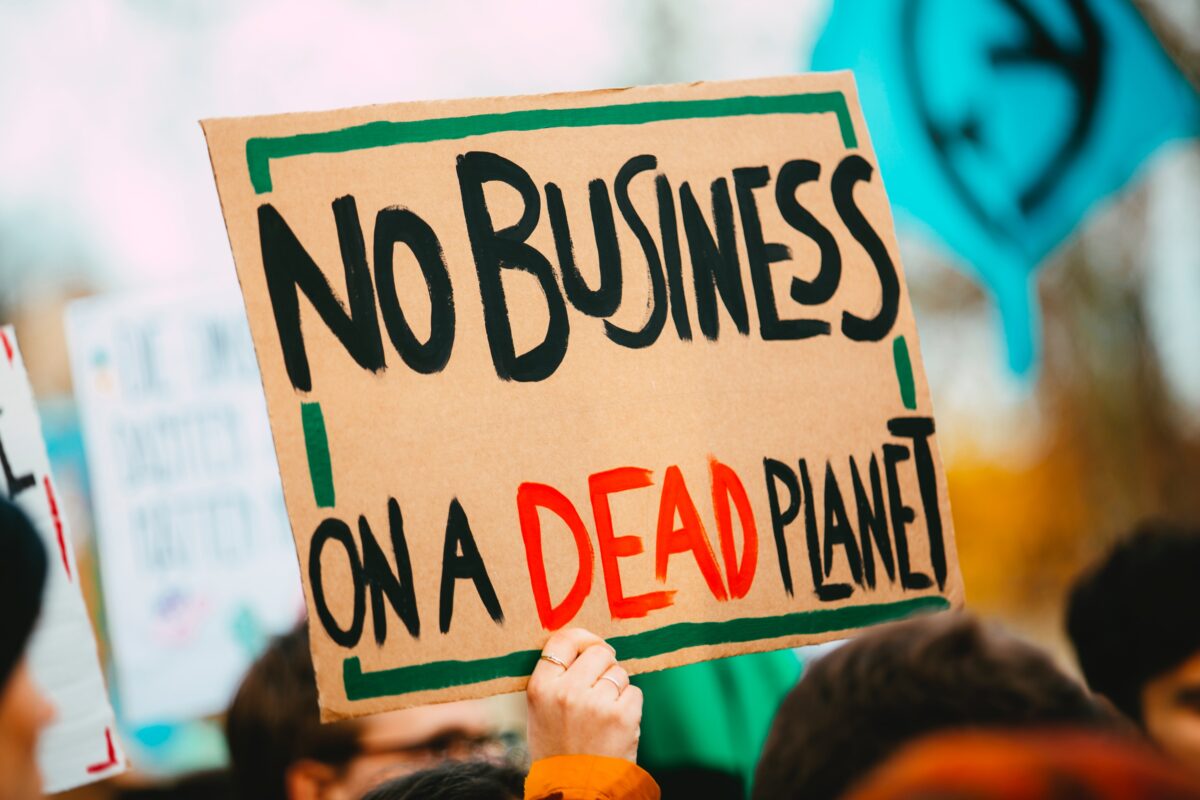We hear the synonym SDG quite often these days. What is SDG, actually?
SDG is basically the short form of the Sustainable Development Goals (SDGs), a set of 17 global goals established by the United Nations in 2015. They provide a comprehensive framework to address major global challenges and promote sustainable development by 2030. The SDGs cover a wide range of interconnected issues, including poverty eradication, gender equality, climate action, responsible consumption and production, quality education, and more.

The government of Bangladesh has embraced the SDGs and integrated them into national development planning. Since opting to implement SDGs, Bangladesh has made significant progress in several areas aligned with the SDGs.
Businesses can play a crucial role in implementing the Sustainable Development Goals (SDGs) in Bangladesh. The private sector, including businesses of all sizes, can contribute to the SDGs through their operations, products, services, and partnerships. Here are some ways in which enterprises can contribute to the SDGs in the country:
1. Innovation and Technological Advancement:
Entrepreneurs can drive innovation and technological advancement, creating new solutions and products that address the various challenges identified in the SDGs. For example, entrepreneurs can develop renewable energy technologies, sustainable agriculture practices, affordable healthcare solutions, and efficient waste management systems.
One real-life example of entrepreneurs driving innovation and technological advancement in Bangladesh is SOLshare. SOLshare is a social enterprise that has developed a groundbreaking peer-to-peer solar energy trading platform.
The platform allows households with solar home systems to sell excess electricity to their neighbors who may not have access to electricity. This innovative approach addresses SDG 7 (Affordable and Clean Energy) by promoting renewable energy and increasing energy access in rural areas.
SOLshare’s technology enables the creation of a microgrid, where households can trade solar energy among themselves through a mobile application. This not only provides access to clean and affordable energy but also generates income for households with excess solar energy production.
The initiative has been successful in empowering communities, improving energy access, and promoting sustainable energy practices. It has received recognition and support from various organizations, including the United Nations Development Programme (UNDP) and the Asian Development Bank (ADB).
(2) Aligning business strategies:
Businesses can integrate the SDGs into their strategic planning processes. By identifying which goals are most relevant to their industry and operations, businesses can align their strategies to contribute to those specific goals. For example, a renewable energy company can contribute to SDG 7 (Affordable and Clean Energy) by providing clean and sustainable energy solutions.
(3) Economic Growth and Job Creation:
Businesses foster economic growth by creating new businesses and job opportunities. By starting and scaling sustainable enterprises, entrepreneurs contribute to poverty reduction and promote inclusive economic development, which aligns with SDG 1 (No Poverty) and SDG 8 (Decent Work and Economic Growth).
Responsible business practices:
Businesses can adopt sustainable and responsible practices to minimize their environmental impact, ensure fair labor practices, and promote social responsibility. This can include actions such as reducing waste and emissions, promoting diversity and inclusion, ensuring fair wages, and respecting human rights. These practices contribute to multiple SDGs, including SDG 12 (Responsible Consumption and Production) and SDG 8 (Decent Work and Economic Growth).
Access to Essential Services:
Entrepreneurs can bridge the gap in access to essential services, especially in rural and underserved areas. They can establish businesses that provide clean water, affordable energy, quality education, healthcare services, and financial inclusion, supporting SDGs such as SDG 3 (Good Health and Well-being), SDG 4 (Quality Education), and SDG 6 (Clean Water and Sanitation). During the COVID-19 pandemic, many edtechs in Bangladesh sprung up and tried to fill the void of education during the closure of schools.
Sustainable Agriculture and Food Security:
Bangladesh heavily relies on agriculture, and entrepreneurship can promote sustainable farming practices, increase agricultural productivity, and improve food security. Entrepreneurs can introduce climate-resilient technologies, organic farming methods, and value-added processing techniques to enhance the agricultural sector, contributing to SDG 2 (Zero Hunger) and SDG 13 (Climate Action).
Women Empowerment:
Entrepreneurship can empower women by providing them with opportunities for economic interdependence and commitment to family. Encouraging female entrepreneurship promotes gender equality (SDG 5) and fosters inclusive economic growth. Programs and initiatives that support women entrepreneurs can contribute significantly to achieving multiple SDGs simultaneously.
Environmental Conservation:
Entrepreneurs can develop and promote eco-friendly products, services, and business models. By adopting sustainable practices, reducing resource consumption, and addressing environmental challenges, entrepreneurs can contribute to SDG 7 (Affordable and Clean Energy), SDG 12 (Responsible Consumption and Production), and SDG 15 (Life on Land).
Partnership and Collaboration:
Entrepreneurs can actively collaborate with various stakeholders, including government agencies, NGOs, and communities, to address complex challenges and implement sustainable solutions. Collaborative initiatives can leverage the strengths of different actors, create synergies, and maximize the impact of SDG implementation efforts.
Reporting and transparency:
Many businesses now report on their sustainability performance, including their contributions to the SDGs. By transparently communicating their efforts, businesses can be held accountable and inspire others to take action. This reporting helps track progress toward the goals and promotes a culture of sustainability within the business community. For example, Rockwell Automation reports beautifully its endeavors under the heading of How we tackle the UN Sustainable Development Goals as a medium-sized business.
It’s important to note that the SDGs provide a framework for businesses to align their activities and contribute to global sustainability. By integrating sustainable practices, embracing innovation, and collaborating with stakeholders, companies can make meaningful contributions to the SDGs while also benefiting their own long-term success.
How new generation Entrepreneurs are aligning themselves with SDGs
Let’s take the example of Shonkhochil Kutir by Zarrin Tasnim. She trains women to work in handicrafts and nakshi products and then markets these products online. Zarrin’s sincere efforts got her into Bangladesh Youth Enterprise Advice & Helpcenter’s (BYEAH) incubation program. After this program her network, expanded to support 450 women, helping them to find new jobs. These women and their families and communities are getting the benefits of this boutique shop.
Zarrin’s business aligns with several Sustainable Development Goals.

- SDG 1: No Poverty – Zarrin’s initiative contributes to poverty reduction by creating income-generating opportunities for herself and potentially for others in her locality in NIlphamary. By establishing her business and earning a livelihood, she can improve her economic situation and uplift her community.
- SDG 5: Gender Equality – Zarrin serves as an inspiration to many women in her locality. Through her entrepreneurial venture, she challenges liberal gender values and stereotypes by demonstrating that women can be successful entrepreneurs as well as good family members. She held her son close to her while she participated in BYEAH’s incubation program in Dhaka. She works with her husband closely to establish her business.
- SDG 8: Decent Work and Economic Growth – Zarrin’s entrepreneurial endeavor generates economic growth at the local level. By creating handicrafts and nakshi products, she not only supports her own livelihood but also potentially creates job opportunities for others in her community. This fosters sustainable economic development and contributes to the overall goal of decent work for all.
- SDG 10: Reduced Inequalities – Zarrin’s work in the remote village of Nilphamari highlights the importance of reducing regional and rural-urban inequalities. By establishing her business in a marginalized area, she brings economic opportunities and development to a community that may have limited access to such opportunities. Her work helps to bridge the gap and reduce inequalities within her locality.
- SDG 12: Responsible Consumption and Production – Zarrin’s focus on handicrafts and nakshi products emphasizes sustainable production and traditional craftsmanship. By promoting and preserving these traditional art forms, she contributes to sustainable consumption patterns and supports cultural heritage. Her business aligns with the goal of responsible production and encourages consumers to value and appreciate artisanal products.
Social Businesses Impact As Good As NGOs to Achieve SDGs
Now let’s take a look at another SME, Shorobor a social business enterprise established in 2014. Shorobor’s mission is to spread goodness through social business. Its vision is to eradicate poverty from minds, hearts, and stomachs. Shorobor started as a trade and supply business and now serves individual customers to United Nation Organizations. Its wings include international trade and import, agro-businesses, retail, marketing agency, real estate, supply & manufacturing, and so on.
How Shorobor helps to realize sustainable development goals in Bangladesh?
- SDG 1 (No Poverty): Shorobor’s focus on eradicating poverty aligns with SDG 1. Shoroor’s social businesses like blanket production with manual sewing machines create job and livelihood opportunities in Bogra, a direct contribution to poverty reduction.
- SDG 3 (Good Health and Well-being): Safe foods like Talbina, pure honey, minimally processed health drinks like Ginolive, healthy oils – mustard and ghee, and spices contribute to promoting good health and well-being, a contribution to SDG 3. The social businesses like selling food packages to individual donors and delivering food to the beneficiaries in rural areas fit perfectly to the cause of good health and well-being of the outreach population.
- SDG 8 (Decent Work and Economic Growth): Through Shorobor’s engagement in various business sectors, including international trade, retail, marketing, and manufacturing, it contributes to promoting decent work and economic growth. By creating employment opportunities and fostering sustainable business practices, Shorobor aligns with SDG 8.
- SDG 11 (Sustainable Cities and Communities): Shorobor’s real estate activities prioritize sustainable development and contribute to creating livable and stronger communities, it aligns with SDG 11.
- SDG 12 (Responsible Consumption and Production): Shorobor’s commitment to spreading goodness through social business includes promoting responsible consumption and production practices. By producing blankets from recycled waste clothes, and adopting eco-friendly manufacturing processes, Shorobor does contribute to SDG 12.

There are many more examples like Solshare, Shonkhochil Kutir, or Shorobor which are beyond our capacity of discussion within this short article.
To effectively harness the potential of entrepreneurship for implementing the SDGs in Bangladesh, it is crucial to create an enabling environment through supportive policies, access to finance, entrepreneurial training, and mentorship programs.
BYEAH is playing a great role in fostering youth entrepreneurship in Bangladesh in accordance with the SDGs. Government agencies, other development organizations, and the private sector should work together to provide the necessary resources and create a favorable ecosystem for entrepreneurship to thrive. This in return will ensure the development of this country would be a sustainable one.


